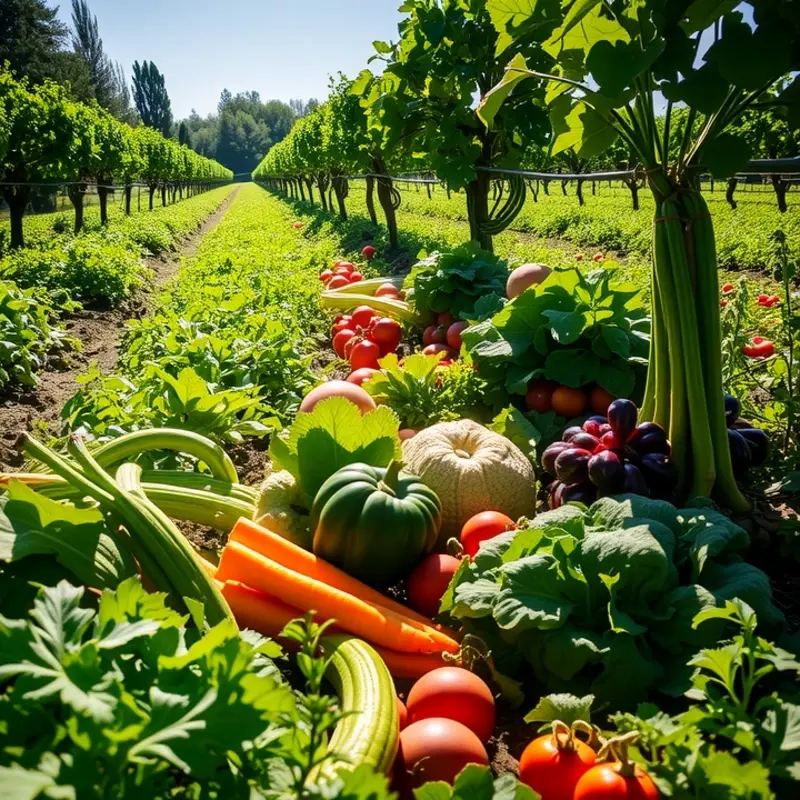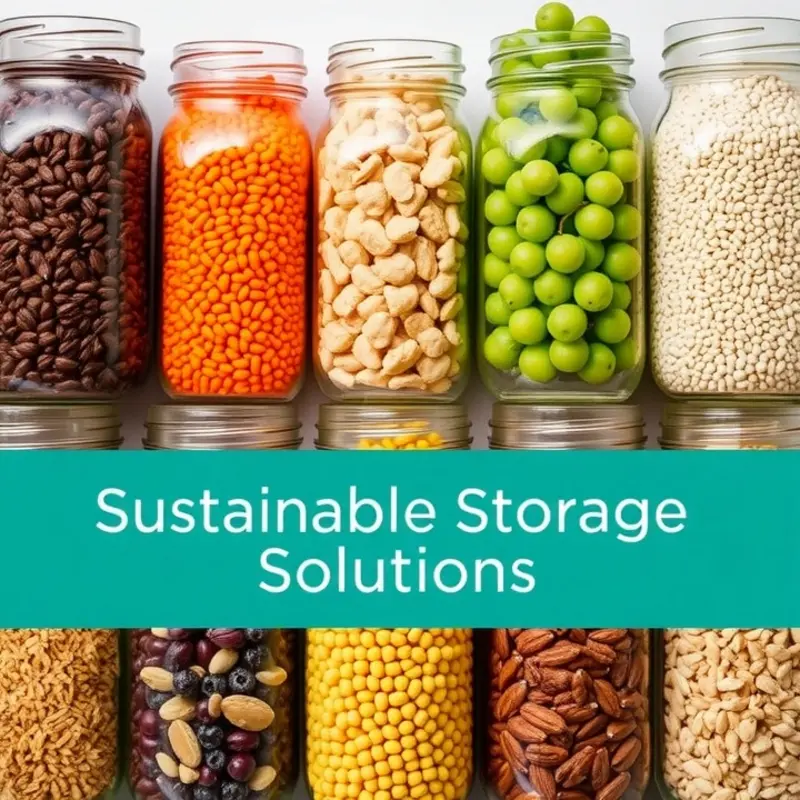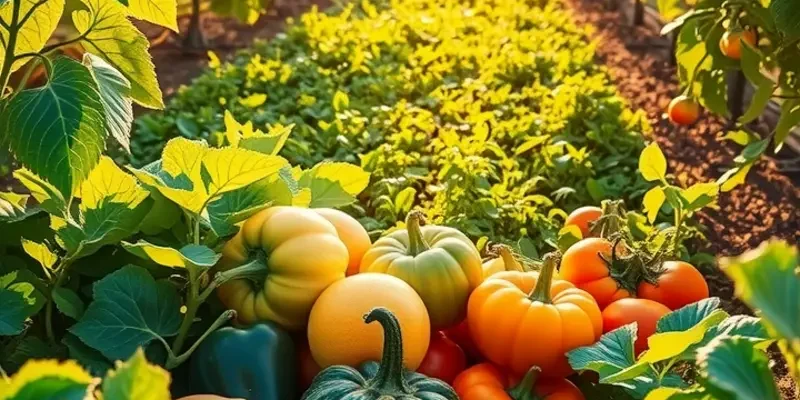Making eco-friendly choices in your pantry can significantly impact the environment. By swapping out common pantry items for more sustainable alternatives, you not only reduce waste but also support ethical practices. This journey towards an eco-conscious pantry can seem daunting, but it’s filled with simple, practical solutions that not only benefit the earth but also create healthier eating habits. Let’s explore some impactful substitutions that promote sustainability without sacrificing flavor or convenience.
Sustainable Staples: Replacing Basics

Starting with the basics is an effective way to transition towards a more eco-conscious lifestyle. Replacing conventional pantry staples with sustainable alternatives not only supports healthier eating habits but also reduces environmental impact. Here are some impactful swaps to consider.
Flour: Instead of reaching for the typical white flour, consider using whole-grain or organic varieties. These options support sustainable farming practices that favor soil health and biodiversity. Whole-grain flours retain more nutrients and fiber, making them a healthier choice. Organic farming reduces the use of harmful pesticides and promotes ecological balance, ensuring that you contribute positively to the environment with every bake.
Sugar: Refined sugars are often produced using intensive processes that can be harmful to the environment. By opting for organic cane sugar, or natural sweeteners like honey and maple syrup, you reduce reliance on these processes. Organic cane sugar is less processed and is produced using environmentally friendly methods. Honey and maple syrup offer natural sweetness and come with their own nutritional benefits, including antioxidants and minerals.
Cooking Oil: Vegetable oils can be resource-intensive to produce and are often genetically modified. Swap these with olive oil or coconut oil, which are generally more environmentally sustainable. Olive oil, particularly when sourced from organic or small-scale producers, offers a rich flavor profile and heart-healthy fats. Coconut oil, harvested from tropical coconut trees, supports sustainable agriculture when sourced responsibly.
Pasta: Traditional pasta can be high in refined carbohydrates. Switching to whole grain or legume-based pasta not only introduces more fiber and protein into your meals but also supports better agricultural practices. Legume pasta is especially notable for its high protein content and lower carbon footprint, often requiring less water and fewer chemicals in production.
Canned Goods: Many canned goods are packaged in materials that contribute to plastic waste. Instead, opt for products packaged in glass or BPA-free tins. Alternatively, purchasing bulk items from local markets can further minimize packaging waste. This approach supports local economies and often ensures fresher, more nutrient-rich products.
To learn more about eco-smart kitchen storage solutions and reduce kitchen waste, explore Eco-Smart Kitchen Storage. This link offers practical insights into creating a more sustainable kitchen environment.
Integrating these small yet meaningful changes in your pantry can significantly impact your overall environmental footprint. Each swap contributes to a larger goal of sustainable living, fostering a healthier relationship with the planet.
Packaging Matters: Choosing Wisely

Packaging significantly affects the environmental footprint of our eating habits. To enhance sustainability, it’s important to consider not just what you eat, but how it’s packaged. Transitioning to eco-friendly packaging solutions can be a powerful tool in reducing waste.
When visiting a grocery store, start by exploring the bulk bins section. Purchasing items like grains, nuts, and snacks in bulk minimizes the need for excessive packaging. Bring your own containers for a zero-waste approach. These containers, ideally glass ones, offer numerous advantages. Unlike their plastic counterparts, glass jars are both reusable and recyclable. They also better preserve the freshness of the contents, helping decrease food wastage.
For those accustomed to using plastic wraps, beeswax wraps present an eco-friendly substitute. These reusable wraps can effectively cover food and dishes, offering a sustainable alternative while maintaining the freshness of stored items. Their natural composition means they’re compostable at the end of their life cycle—another plus for reducing landfill contributions.
Moreover, consider the switch to reusable bags. Washable cloth bags can significantly cut down on single-use plastics when shopping for fruits, vegetables, or even snacks. They are not only more durable but also versatile in application. This simple change in routine can lead to substantial reductions in waste.
Finally, for any items that must be disposed of, opting for compostable or biodegradable packaging is key. Such alternatives break down more efficiently in soil, minimizing long-term environmental impact. These eco-friendly options support a reduction in landfill waste and promote a more circular economy.
To further enhance your sustainable practices, ensure your pantry incorporates green storage solutions. For additional insights on eco-smart kitchen practices, consider exploring resources on eco-smart kitchen storage. This will guide you in making informed decisions about your pantry’s environmental footprint, complementing the eco-friendly packaging strategies discussed here.
Final words
Embracing a more eco-conscious pantry is a significant step towards realizing sustainable eating habits. By replacing conventional staples with eco-friendly alternatives and prioritizing mindful packaging, you can contribute to a healthier planet while enjoying delicious, nutritious meals. Change may feel gradual, but even small swaps add up over time. Each choice counts towards reducing waste and supporting sustainable practices, making a positive impact on your community and the world at large. With every step towards sustainability, you’re encouraging positive change and setting an inspiring example for others. Let’s make eco-conscious eating the norm!








